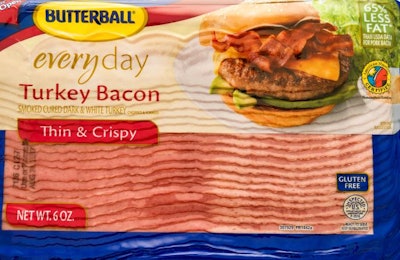
Seaboard Corporation, which owns a 50% stake in Butterball, faced a $10 million loss on its investment in the turkey company for the third quarter of the 2021 fiscal year. However, Seaboard stated that it does anticipate the business to be profitable during the final quarter of the year.
In a form 10-Q on its investor relations webpage, Seaboard stated that the losses widened in the third quarter when compared to the same period during the previous year, largely due to higher feed, transportation and plant production costs, which outweighed the gains made from higher selling prices.
However, during the first nine months of the fiscal year, Butterball performed better than it did during the first nine months of 2020, primarily as a result of an increase in sales volume and higher revenue per pound. Interest costs were also lower in 2021, the company stated.
While some of these challenges are expected to remain during the remainder of 2021, Seaboard did expect a positive end to the year.
“Management is unable to predict market prices for turkey products, the cost of feed or the ongoing impacts of the COVID-19 pandemic, including variants, for future periods however, management anticipates this segment will be profitable for the remainder of 2021 due to its holiday season sales,” the company stated.
Pork segment performance
Seaboard’s pork segment saw net sales of $620 million for the third quarter, an increase from the $466 million recorded one year ago. The operating income rose from $14 million during the third quarter of 2020 to $52 million during the most recent quarter.
“The increase (in net sales) was primarily the result of higher prices of pork products sold, and to a lesser extent, higher prices and volumes of market hogs and higher selling prices of biodiesel, the company stated.
“The increase (in operating income) was primarily due to higher margins on pork product sales and market hogs due to higher sales prices, particularly offset by higher hog costs related to feed.”
Seaboard said it could not predict whether its pork segment would be profitable for the remainder of 2021.


















